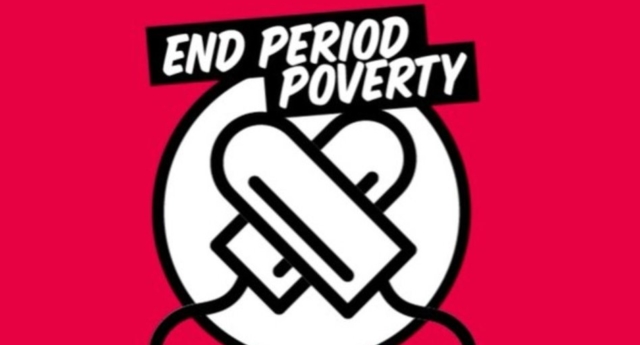Period poverty. The latest phenomenon that has gone unheard of for so long yet caused such outrage and inspired movements when the public sphere’s attention was drawn to it. This isn’t just a ‘third world’ problem: 1 in 10 girls from as young as 10 years old suffer in period poverty in the UK.
However, teenager Amika George took it upon herself to tackle period poverty and to ‘smash the taboo around menstruation.’
By definition, period poverty is used to discuss girls who are unable to afford menstruation products – instead, they are using potentially harmful alternatives such as newspapers or old socks or simply missing school that week. Every month.
In April 2017 Amika set up the #freeperiods online campaign to gain signatures in order to protest the issue, demanding that the issue of period poverty becomes a thing of the past. Not only does period poverty have the short-term consequences of girls missing school – impacting their grades and social development- but it has drastic long-term consequences such as potentially setting them up to 145 days behind male students. Period Poverty Campaigner Emma Koubayssi explains that ‘not being able to afford sanitary products and the stigma surrounding periods can negatively impact self-esteem.’ She goes on to add, ‘there’s also a risk to health.’ An example would be toxic shock syndrome, which can be caused when blood-soaked pads or underwear are not changed regularly.
Growing up, girls should not have to make a choice between education and facing the horrific anxiety of being fearful that they have bled onto the seat or through their uniform. The taboo-stricken topic over periods should never prevent any girl or women from feeling too embarrassed to ask for a sanitary pad.
Therefore, Amika’s demands are simple: for the government to provide free sanitary pads to girls who were already on free school meals and to get talking. She explained, ‘to me, this seemed logical, as these are the ones who are from families that are facing real financial challenges, who have been means-tested already.’
Yet the issue is not contained purely to young school girls, with 68,000 women homeless, many are struggling to afford sanitary pads that will cost each woman roughly £18,000 in a lifetime. Moreover, there is still a 5% VAT whereas, as Amika points out, Jaffa Cakes are untaxed as an essential item. How is it that the government has not solved this basic human rights issue?
A protest of staggeringly 2000+ people outside Downing Street was organised on the 20th of December 2017, with the likes of Tanya Burr, Adwoa Aboah and Daisy Lowe speaking, to demand that Theresa May commit £5 million to eradicate period poverty.
The success of this? £1.5 million in funds was given on the 26th of March 2018 to address UK period poverty. Yet with the United Nations recognising menstrual hygiene as a global public health and human rights issues, it is clear that the ball has not been dropped, the campaign is not going away and the fight is still continuing.
The latest update from the government announcing in March this year that tampon tax funding will go towards ending period poverty: women and girls set to benefit from the £15 million Tampon Tax Fund.
As of August this last year, Waitrose has joined Tesco in reducing the price of sanitary products by cutting the 5% VAT. The government has yet to be able to scrap the VAT altogether due to the EU rules on pricing. In terms of political parties, the Labour Party, the Liberal Democrats and the Green Party have all pledged to address period poverty. This is progress, however, more needs to be done: sign Amika George’s petition, fight the stigma and keep talking.
Tara Lee

